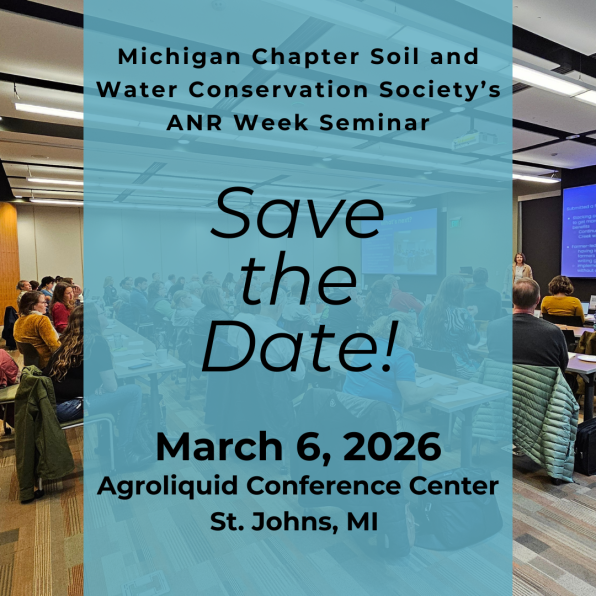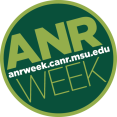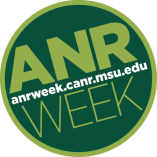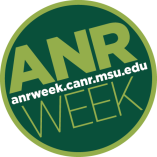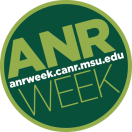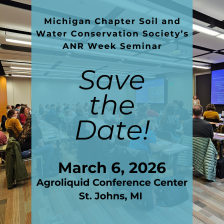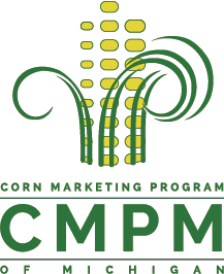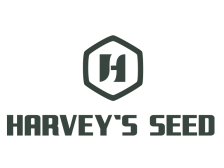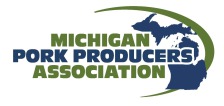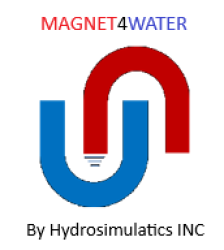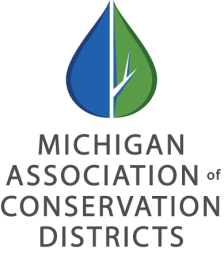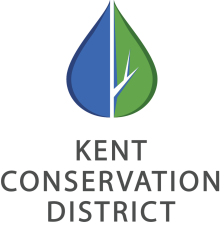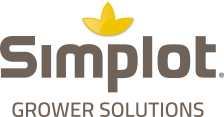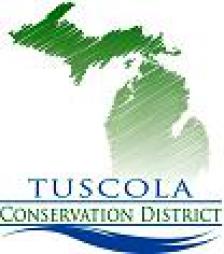"Between 1992 and 2012, we lost nearly 31 million acres of farm land. That's 175 acres an hour, or three acres every single minute.
Between 2007 and 2010, American farms and ranches lost more than 1.7 billion tons of topsoil to erosion." Farms Under Threat, American Farmland Trust, May 9, 2018.
UPCOMING EVENTS
SUSTAINABLE CONSERVATION
Enhancing Soil and Water Quality
9:00 a.m. to 3:30 p.m. March 6, 2026
Agri-Liquid Conference Center, St. Johns, Michigan
CONSERVATION CAN'T WAIT! Supporting conservationists is at the heart of all SWCS programs. At a time when government programs are being delayed or cut and budgets for ongoing conservation programs are tight, it is more important than ever to support conservation at all levels. The Michigan Chapter of the Soil and Water Conservation Society strives to meet that challenge through Professional Development.
NOTE: 4 Certified Crop Advisor Continuing Education Units
(CCA-CEUs) have been approved for this Seminar.
This is the 2/26/26 version of the March 6, 2026 ANR Seminar Agenda.
2026 SWCS Seminar Agenda v7.pdf
Adobe Acrobat document [134.9 KB]
This 2 page file contains the presentation abstracts currently available for the March 6, 2026, ANR Seminar. Updates will be posted here.
2026_ANR_Abstracts v4.pdf
Adobe Acrobat document [129.6 KB]
This 2 page file describes who the Seminar speakers are.
2026_ANR_Speaker_Bios v3.pdf
Adobe Acrobat document [132.3 KB]
MICHIGAN BUSINESSES AND ORGANIZATIONS
SPONSOR/SUPPORT THIS SEMINAR EVENT AND THE MICHIGAN CHAPTER OF THE SOIL AND WATER CONSERVATION SOCIETY!
For information click here!
This document provides a list of the benefits associated with the sponsorship levels. It can also be used as a mail-in application with accompanying payment.
2026 ANR Seminar Sponsorship Application[...]
Adobe Acrobat document [128.1 KB]
2025 EVENTS ARCHIVE
MICHIGAN CHAPTER SWCS
ANNUAL MEETING
Held Friday, December 19, 2025
Held virtually through Zoom meetings.
Meeting agenda, presentation and "handouts" below.
This is the seventh draft of the Michigan Chapter SWCS agenda for the 2025 Annual Business meeting.There are still some hot links not active yet.
MiSWCS 2025 Ann Mtg Agenda v7.pdf
Adobe Acrobat document [95.7 KB]
These minutes of the 2024 Annual Business Meeting are presented here for review and approval at the 2025 Annual Business Meeting.
2024 MiSWCS Annual Meeting minutes draft[...]
Adobe Acrobat document [104.4 KB]
This report covers the financial status for all funds held by the Michigan Chapter SWCS.
Accounts-statement-2025.pdf
Adobe Acrobat document [65.0 KB]
This report explains the Michigan Chapter SWCS financial plans and results for the General Fund for Fiscal Year 2025 up to December 17.
Budget-Report-12.17.2025.pdf
Adobe Acrobat document [65.6 KB]
This document describes the activities of the Michigan Chapter SWCS to support professional development of soil and water conservation practitioners in Michigan.
SWCS 2025 Professional Development Repor[...]
Adobe Acrobat document [80.8 KB]
This report covers Scholarship Committee actions during calendar year 2025.
Scholarship Committee Report_2025-2026.p[...]
Adobe Acrobat document [62.4 KB]
State of the International Society by Renee Bouldin, SWCS Program Manager
MI Annual Meeting Presentation 12.19.25.[...]
Adobe Acrobat document [3.4 MB]
MICHIGAN CHAPTER SWCS
2025 ANR SEMINAR
Held Friday, March 7, 2025
AgroLiquid Conference Center
3055 W. M-21, St. Johns, MI 48879
SUSTAINABLE INTENSIFICATION OF THE
RURAL
LANDSCAPE:
Protecting Soil Health, Water Quality
and Farm Profitability
Michigan’s physical geography consists of diverse landscapes surrounded by Great Lakes. These landscapes include complex rural, urban and riparian environmental systems integrating a multitude of land uses; all supported by soil and its complex physical, chemical and biological components. Management of these soils involves both supporting human needs for production, and the environmental needs to support and protect the ecosystem. Many agricultural producers seek to manage their systems guided by agroecological principles whereby soil health and ecological services accumulate in mutually supportive ways. They are actively involved in devising, testing, and evaluating new and innovative practices on their farms to enhance biodiversity and beneficial interactions while improving resilience and mitigating risk. Urban land users also have important roles in ecosystem protection. Attendees at this Seminar learned about efforts to support Michigan's ecosystem.
AGENDA, ABSTRACTS AND BIOGRAPHIES
HANDOUT
Provided by Nathan Ayers,
Director, Michigan Agroforestry Partnership
Agroforestry in Michigan Handout.Final.p[...]
Adobe Acrobat document [1.2 MB]
AUTHORIZED PRESENTATION MEDIA
Dr. Bruno Basso, John A. Hannah Distinguished Professor
Michigan State University
Basso_Michigan Water District_2025_reduc[...]
Adobe Acrobat document [4.8 MB]
Naim Edwards, Director
Detroit Partnership for Food, Learning and Innovation
Michigan State University
Naim Edwards UrbanAg_2025.pdf
Adobe Acrobat document [7.6 MB]
Jane Elder, Author: Wilderness, Water and Rust
Retired Director of the Wisconsin Academy of Sciences, Arts and Letters
Former National Director of Ecoregion Programs for the Sierra Club.
Jane Elder A Journey Toward Great Lakes [...]
Adobe Acrobat document [5.6 MB]
Aron Buechler, Owner, Buechler Farms, and Total Solutions Consulting, Bay County
Bryan Schwab, Schwab Farms, Bay County
Jason Deshano, Deshano Farms, Bay County
Buechler Farms 3-7-2025 SWCS A Journey i[...]
Adobe Acrobat document [2.3 MB]
Tess Van Gorder, Conservation & Regulatory
Relations Specialist, Michigan Farm Bureau
2025 SWCS ANR Presentation Van Gorder.pd[...]
Adobe Acrobat document [2.8 MB]
2024 EVENTS ARCHIVE
MICHIGAN CHAPTER SWCS
ANNUAL MEETING
Held Thursday, December 12, 2024, 10:00 a.m. to 11:15 a.m. EST
THE AGENDA AND "HANDOUTS" FROM THIS ANNUAL CHAPTER BUSINESS MEETING ARE POSTED BELOW
This agenda has hyperlinks to some of the handouts for the 2024 Annual Meeting.
MiSWCS 2024 Ann Mtg Agenda v6.pdf
Adobe Acrobat document [93.6 KB]
These minutes are awaiting approval at the 2024 Michigan Chapter SWCS Annual Meeting.
2023 MiSWCS Annual Meeting minutes.pdf
Adobe Acrobat document [113.9 KB]
This is the year end Statement of Accounts covering all the financial accounts belonging to the Michigan Chapter SWCS
12.8.2024-Account-Statement.pdf
Adobe Acrobat document [90.4 KB]
This Treasurer's Report shows the 2024 General Fund Budget as planned and implemented through the year.
12.8.2024-budget.pdf
Adobe Acrobat document [80.8 KB]
This report describes the efforts of the Professional Development Committee to bring quality professional development programs to all Conservation professionals.
MI Chapter SWCS 2024 Professional Develo[...]
Adobe Acrobat document [56.6 KB]
This is a report includes information on the 2024-2025 Scholarship Award, as well as, reference to the 2023-2024 Scholarship winner.
Scholarship Committee Report_2024-2025.p[...]
Adobe Acrobat document [61.3 KB]
This is outgoing President Steve Schaub's comments on his year as Chapter President in 2024.
2024 outgoing report Schaub.pdf
Adobe Acrobat document [39.3 KB]
MICHIGAN CHAPTER SWCS
2024 ANR SEMINAR
Held March 8, 2024
AgroLiquid Conference Center
3055 W. M-21, St. Johns, MI 48879
Rural landscapes are complex environmental systems integrating crop, pasture, forest and other land uses, including riparian zones; all supported by soil and its complex physical, chemical and biological components. Soil management includes: crop rotations, nutrient cycling, balancing pests and pathogens, and other interactions. Many producers seek to redesign their cropping systems guided by agroecological principles whereby soil health and ecological services accumulate in mutually supportive ways. They are actively involved in devising, testing, and evaluating new and innovative practices on their farms to enhance biodiversity and beneficial interactions while improving resilience and mitigating risk. Attendees at this Seminar discovered practical and sustainable ways to manage rural landscapes. NOTE: If approved by individual presenters, pdf vdersions of their presentations will be posted below.
AGENDA, BIOS AND ABSTRACTS
All speakers are currently confirmed.
2024 MiSWCS ANR Seminar Agenda v2.pdf
Adobe Acrobat document [128.1 KB]
A brief description of the content or purpose of each presentation.
2024_ANR_Seminar_Abstracts v6.pdf
Adobe Acrobat document [111.3 KB]
2024_ANR_Speaker_Bios v5.pdf
Adobe Acrobat document [113.2 KB]
HERE ARE THE PRESENTATIONS THAT PRESENTERS HAVE SHARED IN PDF FORMAT
SBMC for SWCS 2024 Karpovich Pearsall.pd[...]
Adobe Acrobat document [5.2 MB]
Wilson.2024.MI SWCS Mtg.pdf
Adobe Acrobat document [4.1 MB]
3-8-24 PowerPoint Presentation _ Foresti[...]
Adobe Acrobat document [9.5 MB]
Conservation in Action - Thelen.pdf
Adobe Acrobat document [1.1 MB]
2024 Soil and water meeting - Burk.pdf
Adobe Acrobat document [15.6 MB]
The videos shown on-site are not included with this pdf due to the excessive file size needed.
Power Point St Johns - Baker - no videos[...]
Adobe Acrobat document [3.3 MB]
The videos shown on-site are not included with this pdf due to the excessive file size needed.
Kanine_MSWC_2024 - no videos.pdf
Adobe Acrobat document [13.5 MB]
2023 EVENTS ARCHIVE
MICHIGAN CHAPTER SWCS
ANNUAL MEETING
Held Friday, December 15, 2023, 10:00 a.m. to 11:30 a.m. EST
SEE BELOW FOR "HANDOUTS" FROM THIS REQUIRED
ANNUAL CHAPTER BUSINESS MEETING
MiSWCS 2023 Ann Mtg Agenda5.pdf
Adobe Acrobat document [95.0 KB]
2023-Account-Statement-DECEMBER.pdf
Adobe Acrobat document [89.2 KB]
2023-BUDGET-DECEMBER.pdf
Adobe Acrobat document [86.5 KB]
Proper Chapter business management requires that the minutes from the previous Chapter Annual Meeting (2022) be available for review and subsequent approval at the following year's Chapter Annual Meeting (2023). This file contains the minutes from the 2022 Chapter Annual Meeting for review by all Chapter members.
2022 MiSWCS Annual Meeting minutes.pdf
Adobe Acrobat document [122.2 KB]
SWCS 2023 Professional Development Repor[...]
Adobe Acrobat document [48.0 KB]
Scholarship_Report_2023_miSWCS.pdf
Adobe Acrobat document [124.3 KB]
Anaerobic Digester Workshop:
The future of manure and food waste management
Held on Friday, September 15, 2023 from 1 to 4 PM
in and near Coopersville, Michigan
Description: Manure digesters are becoming an important part of Michigan's diverse portfolio of renewable energy production. These systems are providing farmers with
opportunities for additional revenue streams through harvesting bio-gas produced by the anaerobic digestion of their farm's animal manure. However, these systems are complex, have multiple design
options, and frequently include the potential for additional treatment options. When designed and operated correctly, anaerobic digesters produce bio-gas that is collected, cleaned, and sold as
Renewable Natural Gas. As a bonus, the treatment process can significantly reduce manure bacteria levels, improve the availability of manure nutrients, and reduce manure odors.
Workshop participants learned the fundamentals of anaerobic digestion and toured a new anaerobic digester that is designed to treat manure from three large dairy farms and generate renewable energy from manure.
There was no fee for this Workshop. See flyer and agenda, workshop presentation in pdf, and handouts below.
James DeYoung, CJD Farm Consulting, and
Dana Kirk, Ph.D, PE and Engineer Consultant,
and Retired faculty, Michigan State University
Digester presentation SWCS 2023.pdf
Adobe Acrobat document [1.2 MB]
Iowa State University Extension
What is anaerobic digestion.pdf
Adobe Acrobat document [3.8 MB]
Pennsylvania State University Extension Leaflet prepared by Daniel Ciolkosz, Edward Johnstonbaugh, and Siobhan Fathel, Penn State Extension, in collaboration with Iowa State University Extension
and Outreach.
Anaerobic Digesters for Renewable Natura[...]
Adobe Acrobat document [2.2 MB]
2023 ANR SEMINAR
Held Friday, March 10, 2023
AgroLiquid Conference Center, St. Johns, MI
Sustainable Intensification of the Rural Landscape:
Protecting Soil Health, Water Quality, and Farm Profitability
Rural landscapes are complex physical and biological systems integrating crop and forested land, crop rotations and riparian zones, nutrient cycling, a balance of pests and pathogens, and other interactions. Many producers seek to redesign their cropping systems guided by agroecological principles whereby soil health and ecological services accumulate in mutually supportive ways. They are actively involved in devising, testing, and evaluating new and innovative practices on their farms to enhance biodiversity and beneficial interactions, and improve resilience and risk mitigation. Attendees at the 2023 Michigan Chapter of the Soil and Water Conservation Society March 10 conference discovered practical and sustainable ways to manage the rural landscape.
2023 SWCS ANR Seminar Agenda 02-24-23 v7[...]
Adobe Acrobat document [120.4 KB]
A description of the content of each presentation.
2023_ANR_Abstracts v 02-09-23.pdf
Adobe Acrobat document [109.4 KB]
Who are the speakers?
2023_ANR_Speaker_Bios v 02-09-23.pdf
Adobe Acrobat document [108.4 KB]
FOLLOWING ARE AVAILABLE SEMINAR PRESENTATIONS IN PDF FORMAT
MI Geol Surv Soil Water Conser Mar 10 2[...]
Adobe Acrobat document [11.9 MB]
Cooper 03.10.23_SWCS_FCCP_vfinal.pdf
Adobe Acrobat document [28.8 MB]
Other presentations will be added as they become available.
2022 EVENTS ARCHIVE
WEBINAR WORKSHOP
Edge-of-field monitoring for tillage management impacts on water quality and quantity in St. Johns, Michigan
By Jeremiah Asher, Assistant Director
Institute of Water Research
Michigan State University
Presented 2:00 to 3:00 p.m. Friday, December 16
"I mostly described the setup and monitoring we did at the site and what we found through that monitoring over three years. We were trying to understand the soil health impacts on water quality and quantity at the site. We made some good progress toward that goal, but still have unanswered questions. We also talked about different observations of soil health properties between the fields, etc."
This presentation is available here. The file is SWCS_Pres_480.mp4
MICHIGAN CHAPTER ANNUAL MEETING
Was held virtually 12:30 to 1:30 p.m. Friday, December 16.
ANNUAL MEETING HANDOUTS
MiSWCS2022AnnMtgAgenda.pdf
Adobe Acrobat document [79.8 KB]
2021 MiSWCS Annual Meeting minutes.pdf
Adobe Acrobat document [111.0 KB]
2022-Treasurers-Report.pdf
Adobe Acrobat document [142.3 KB]
This Committee Report covers the Michigan Scholarships in Conservation Program award for the Fall 2022 - Spring 2023 Academic Year.
Scholarship Committee Report for 2022 An[...]
Adobe Acrobat document [78.8 KB]
MI SWCS Professional Development Report [...]
Adobe Acrobat document [56.3 KB]
Held 9:00 a.m. - 4:15 p.m., Friday, March 11, 2022
AgroLiquid Conference Center
3055 W. M-21, St. Johns, MI
Rural landscapes are complex physical and biological systems integrating cropland, forestland and riparian zones, crop rotations and nutrient cycling, a balance of pests and pathogens, and other interactions. Many producers seek to redesign their cropping systems guided by agro-ecological principles whereby soil health and ecological services accumulate in mutually supportive ways. They are actively involved in devising, testing, and evaluating new and innovative practices on their farms to enhance biodiversity and beneficial interactions, improve resilience and mitigate risk. Attendees at this Michigan Chapter of the Soil and Water Conservation Society Seminar discovered practical and sustainable ways to manage the rural landscape through five presentations.
2022 SWCS ANR Seminar Agenda v6.pdf
Adobe Acrobat document [132.8 KB]
2022_ANR_Abstracts v4.pdf
Adobe Acrobat document [115.0 KB]
2022_ANR_Speaker_Bios v4.pdf
Adobe Acrobat document [102.4 KB]
FOLLOWING ARE COPIES OF PRESENTATIONS AND HANDOUTS IN PDF FORMAT
This is a pdf copy of Dr. Gasteyer's March 11 ANR Seminar presentation.
Gasteyer-Engaging-Local-Knowledge.pdf
Adobe Acrobat document [2.7 MB]
This is a pdf copy of Dr.Penn's presentation describing phosphorus removal structures research and guidelines. This was his first presentation.
Penn-1-p-removal-structures.pdf
Adobe Acrobat document [12.0 MB]
This pdf is the phosphorus removal structure design demonstration that was Dr. Penn's second presentation.
Penn-2-demonstration.pdf
Adobe Acrobat document [4.5 MB]
This is a handout Dr. Penn emailed to us after the March 11 Seminar.
Purdue printed P removal structures.pdf
Adobe Acrobat document [2.3 MB]
This is the joint presentation by Julie Crick, Kable Thurow and Monica Jean of Michigan State University Extension,
Crick-Jean-Thurlow-Silvopasture.pdf
Adobe Acrobat document [13.4 MB]
This handout was distributed during the Seminar on March 11.
EvaluatingPotentialSiteforSilvopasture.p[...]
Adobe Acrobat document [212.1 KB]
This guide for helping determine the density of a forest stand was another handout at the March 11 Seminar. This helps with the Evaluation worksheet above.
basal_area_guide.pdf
Adobe Acrobat document [1.3 MB]
This publication was the third handout at the March ll Seminar.
Forages for Silvopastures.pdf
Adobe Acrobat document [870.2 KB]
This is the presentation by Rebecca Power, Director. North Central Region Water Network, University of Wisconsin-Extension
Power-Strengtherning-Conservation.pdf
Adobe Acrobat document [6.7 MB]
This is the last presentation of the day by Jim Graham, Clinton County farmer.
Graham-Farm-Woodlot-Management.pdf
Adobe Acrobat document [8.3 MB]
PRIOR YEARS EVENTS ARCHIVES
HELD DECEMBER 3, 2021
MICHIGAN CHAPTER SWCS ANNUAL MEETING
The Chapter Annual Meeting was held virtually through a Zoom portal.
The documents below were discussed during the meeting.
Draft minutes of this meeting are also posted below.
These minutes are from our December 3, 2021, Annual Meeting, and are considered draft until approved at the Year 2022 Annual Meeting.
2021 MiSWCS Annual Meeting minutes.pdf
Adobe Acrobat document [112.9 KB]
This report shows the status of various funds the Michigan Chapter manages through the end of November. This file will be replaced with the Treasurer's End of Year Report sometime in January.
2021-ACCOUNT-STATEMENT-Annual-Meeting.pd[...]
Adobe Acrobat document [124.2 KB]
This report shows the 2021 Budget as Planned and as Accomplished to Date. This file will be replaced with the Treasurer's End of Year Report sometime in January.
2021-Budget-Report-Annual-Meeting.pdf
Adobe Acrobat document [103.1 KB]
This report describes the professional development activities carried out by the Michigan Chapter SWCS during the 2021 Calendar Year.
Michigan Chapter SWCS Professional Devel[...]
Adobe Acrobat document [112.3 KB]
Scholarship Committee Report for 2021 An[...]
Adobe Acrobat document [371.2 KB]
Farming systems are complex physical and biological systems integrating fieldwork, crop rotations, nutrient cycling, pest regulation, and other interactions. Some producers are redesigning their cropping systems guided by agro-ecological principles whereby soil health and essential ecological services accrue in mutually supportive ways. They are actively involved in devising, testing, and evaluating new and innovative practices on their farms, not just adopting introduced technologies. Conference attendees will learn from university research and field experience; local intergovernmental organization project experience; and producer innovation and networking experience. SWCS connects Conservation Professionals, practitioners and partners. Sponsored by the Michigan Chapter of the Soil and Water Conservation Society and co-sponsored by MSU Extension. The webinars were recorded and are now available on YouTube at these links.
This file contains the agendas from both Webinars.
2021 SWCS ANR Webinar Agenda v8.pdf
Adobe Acrobat document [101.2 KB]
Brief descriptions of presentations.
2021_ANR_Abstracts v3.pdf
Adobe Acrobat document [95.8 KB]
Who were the speakers for the MiSWCS 2021 ANR Month Webinars?
2021_ANR_Speaker_Bios v4.pdf
Adobe Acrobat document [90.9 KB]
MICHIGAN CHAPTER SWCS
WORKSHOP WEBINAR
Held Tuesday, October 27, 2020
Floating Wetland Treatment of Subsurface Drainage
Jeremiah Asher, Assistant Director
Institute of Water Research
Michigan State University
NOTE: See below for a complete recording of this webinar.
WATER QUALITY SCIENCE WEBINAR
Held Thursday, September 17, 2020
Presentations on two current water quality projects from Michigan State University's Institute for Water Research (IWR) were delivered 9/17/20. The first described a project in the River Raisin Watershed in which IWR is conducting tile drain monitoring and sharing the data with producers to inform conservation efforts on their fields. The second reviewed IWR's efforts to improve water quality and enhance groundwater recharge in the Maple River Watershed through an NRCS Regional Conservation Partnership Program. Each presentation was followed by a Q&A session. See below for a recording of the webinar, and the presentation abstracts.
Engaging River Raisin Farmers in a Sub-surface Water Monitoring Program:
A look into applicability, efficacy, and need
Alaina Nunn, Research Assistant
Institute of Water Research, Michigan State University
ABSTRACT: In the last decade, Lake Erie has seen increases in harmful algal blooms, driven primarily by excess nutrients from varying sources. Of these sources, subsurface drainage has been identified as one of the primary pathways for agricultural contributions of phosphorus to the basin. This study examines the implementation of a low-cost tile drain monitoring program in the headwaters of the River Raisin, where we explored the use of subsurface water quality data as a feedback mechanism for increasing farmer awareness of nutrient loss issues specific to their farm. Participants received water quality reports every three months, which included data such as tile flow, nutrient loading, major rain events (½ inch or more), and anonymous comparison of others’ tile drain discharge. Participants were then interviewed to gain a further understanding of the applicability, efficacy, and need for water quality data as it applies to engagement in conservation and improving the health of Lake Erie. During this webcast we will explore the methods used for this study, its applicability and reproducibility in other areas, and will discuss key learning points discovered during the participant farmer interviews.
Improving Stream Habitat
in the Maple River Watershed
Connor Crank, Project Coordinator
Institute of Water Research, Michigan State University
ABSTRACT: Many of Michigan’s streams are fed by groundwater, which provides them with a cool and steady baseflow. Several economically and ecologically important fish species in Michigan and the Great Lakes region require cool or cold water streams to thrive. Groundwater extraction competes for these flows and can also divert critical flows, negatively impacting fish populations. The increasing demands on agricultural production also have the potential to increase demands for irrigation and fertilizer inputs, further aggravating the challenges to groundwater quantity and quality. The Institute of Water Research at Michigan State University, in partnership with the USDA NRCS, are offering conservation funding through a Regional Conservation Partnership Program (RCPP) for agricultural practices in the Maple River watershed that increase groundwater replenishment and reduce sediment. Increasing infiltration on agricultural lands reduces surface runoff of sediment and nutrients from fields and provides more stable temperatures for fish in rivers and streams.
Learn more about the new conservation project in the Maple River watershed led by the Institute of Water Research at Michigan State University.
MICHIGAN CHAPTER
2020 ANR SEMINAR
A Matter of
Balance:
Conservation Agriculture in Uncertain Times
(Bringing Conservation Science to Practice)
Was held Wednesday, March 4, 2020
Modern crop and livestock systems are complex, and the management of these systems requires continuous adaptation and change in practices and strategies. Conservation Science brings the practices and strategies to the farm, but implementation depends on the agricultural producer. Climate change and market fluctuations both impact the producers ability to implement practices. Conservation Science can develop the practices, but only Conservation Producers can implement them. Conservation Technical Assistance Professionals, whether Private, Conservation District, State or Federal, are the bridge between Science and Practice. SWCS connects Conservation Professionals and Partners.
2020 SWCS ANR Seminar Agenda-Update v7.p[...]
Adobe Acrobat document [129.9 KB]
2020_ANR_Speaker_Bios v4.pdf
Adobe Acrobat document [95.8 KB]
2020_ANR_Abstracts v4.pdf
Adobe Acrobat document [100.1 KB]
2020 SEMINAR PRESENTATIONS
Dr. Jeffrey A. Andresen, Professor and State Climatologist for Michigan
Department of Geography, Environment and Spatial Science
College of Social Science, Michigan State University
SWCS.climchange.JAA.pdf
Adobe Acrobat document [5.7 MB]
Dr. Matt Helmers, Professor
Dept. of Agricultural and Biosystems Engineering
Director, Iowa Nutrient Research Center
Iowa State University, Ames, Iowa
Helmers Michigan 1.pdf
Adobe Acrobat document [15.5 MB]
Mike Buis
Buis Beef
Chatham, Ontario, Canada
Buis_2020 Michigan.pdf
Adobe Acrobat document [93.3 MB]
Dr. Matt Helmers, Professor
Dept. of Agricultural and Biosystems Engineering
Director, Iowa Nutrient Research Center
Iowa State University, Ames, Iowa
Helmers Michigan 2.pdf
Adobe Acrobat document [3.0 MB]
Dr. Glenn O'Neil, Environmental Scientist and GIS Specialist
(Presented by Jeremiah Asher, Assistant Director)
Institute of Water Research, Michigan State University
Maple_SWCS_Meeting_ANR.pdf
Adobe Acrobat document [5.7 MB]
Stories of the Successes and Challenges of Converting to Strip-Till, Inter-seeding Cover Crops, and Using Innovative Conservation Practices to go Above and Beyond Conventional in a Corn, Soybean, Sugar Beet Rotation in the Thumb.
Ryan and Melissa Shaw
SKS Farm, Marlette, MI
R M Shaw 2020 SWCS Presentation.pdf
Adobe Acrobat document [17.4 MB]
MICHIGAN CHAPTER SWCS WORKSHOP
ENHANCING WATER RESOURCE MANAGEMENT -
NEW DISCOVERIES AND OPPORTUNITIES
Presented Tuesday, October 29, 2019
Speakers: Dr. Zachary Curtis, Hydrosimulatics Inc.; Paul Sachs, Ottawa County Planning Dept. and Megan Boos, Ottawa CD
Access three YouTube videos of the presentation here.
MICHIGAN CHAPTER SWCS ANNUAL MEETING
Held 10:00 a.m., Monday, October 28, 2019
This was the Annual Business Meeting for Michigan Chapter SWCS members. Non-members were welcome to attend for information, but voting was limited to Michigan Chapter Soil and Water Conservation Society members.
See below for documents that were discussed and approved at the Annual Meeting.
2019_Account_Statement_for_Annual_Meetin[...]
Adobe Acrobat document [67.8 KB]
2019_BUDGET_Sept_for_Annual_meeting.pdf
Adobe Acrobat document [65.9 KB]
Membership and Outreach Committee Report[...]
Adobe Acrobat document [78.1 KB]
Professional Development Committee Repor[...]
Adobe Acrobat document [64.4 KB]
Scholarship Committee Report.pdf
Adobe Acrobat document [64.7 KB]
2019 President's Annual Report.pdf
Adobe Acrobat document [58.1 KB]
MICHIGAN CHAPTER
SOIL AND WATER CONSERVATION SOCIETY
FIELD TRIP
Quality Fruit Production, Processing and
Transition Organic Farming in Northern Michigan
Held Monday, October 28, 2019
1:30 to 4:30 p.m.
This was a tour of one of largest tart cherry farms (Cherry Ke) and processing facilities (Great Lakes Packing) in the country. We heard from the experts about quality fruit production and discussed the current pest/disease issues in the industry. We will also heard about Cherry Ke’s transition organic tart cherry farm in Acme MI. At the second stop, Great Lakes Packing, we learned about tart cherry processing and water use, recycling and disposal of water and how they take a waste material of cherry pits and turn them into a value added fuel source in Michigan. This tour will started and ended at the MACD Convention site at Shanty Creek Resort, Bellaire, MI.
Speakers were: Dan Busby, MAEAP Verifier for MDARD, and Nels Veliquette and Company with Cherry Ke and Great Lakes Packing.
INFORMATION LINKS
Link to Great Lakes Packing http://www.greatlakespacking.com/
Link to Shoreline Fruit https://www.shorelinefruit.com/
Link to the Shoreline Fruit, Cherry Bay Orchards and Cherry Ke story https://www.shorelinefruit.com/grower-owned
Held Wednesday, March 6, 2019
AgroLiquid Conference Center, 3055 W. M-21. St. Johns, Michigan
Modern crop and livestock systems are complex, and the management of these systems requires continuous adaptation and change in practices and strategies. Many advances in agricultural technology offer opportunities to protect water quality and build soil health, yet farmers are often unable or unwilling to adopt new practices.
Farmers integrate all levels of information in the farming system to make informed decisions. A new technology can disrupt the farming system while the actual benefit is not always clear. Farmer participation and involvement are crucial in the process by which new practices are developed, evaluated, improved, and adopted. Farmers need the support of consultants, university and extension educators, technical service providers, and other farmers in developing flexible production alternatives.
There is a need for diverse approaches for targeting the educational and assistance needs of individual farmers. The goal of this conference was to discuss strategies to help farmers make sound decisions in evaluating and adopting technologies compatible with their existing farming practices. Conference speakers included national experts and experienced crop producers who shared experience and insights into how to develop and deliver specific assistance to individual farmers in a format that is compatible with their needs and capabilities.
2019 SWCS ANR Seminar Agenda.pdf
Adobe Acrobat document [111.9 KB]
PRESENTATIONS IN PDF FORMAT
Dr. Prokopy's morning presentation.
Prokopy_MISWCS_agbmp_March6_2019.pdf
Adobe Acrobat document [3.8 MB]
Jim Isley's morning presentation.
Isley_March_6.pdf
Adobe Acrobat document [3.3 MB]
Dr. Zach Curtis, Hydrosymolatics, Inc., presentation.
miSWCS_3.6.19_Curtis_v2.pdf
Adobe Acrobat document [8.4 MB]
Paul Sachs, Director, Ottawa County Planning Dept. presentation.
Sachs_March_6.pdf
Adobe Acrobat document [14.6 MB]
Dr. Prokopy's afternoon presentation.
Prokopy MI SWCS Sag Bay.pdf
Adobe Acrobat document [4.6 MB]
Wendy Ogilvie's presentation.
Ogilvie_Lower_Grand_RCPP.pdf
Adobe Acrobat document [3.4 MB]
Mary Fales' presentation.
Fales_Saginaw_Bay_RCPP.pdf
Adobe Acrobat document [2.0 MB]
DJ Shook's presentation.
Tribal_Fruitbelt_RCPP.pdf
Adobe Acrobat document [1.6 MB]
MICHIGAN CHAPTER SWCS
TECHNICAL WORKSHOP
Held at Shanty Creek Resorts, Bellaire, Michigan
During the MACD Fall Convention
Title: Computer Assisted Nutrient Management Planning Program (CANMaPP); A discussion with developers, farmers and conservation field staff for tool integration, planning, support and conservation assessment.
Date: Tuesday, October 30th, 2018
Time: 3:30pm – 5:00pm
The Natural Resources Conservation Service (NRCS) and the Michigan Chapter of the Soil and Water Conservation Society (MiSWCS) hosted a session at the Michigan Association of Conservation District (MACD) Fall Conference about a new tool that may be very useful to farmers and conservation field staff. The Computer Assisted Nutrient Management Planning Program (CANMaPP) is an online tool, currently in-development, that assists with nutrient management plan implementation and documentation. More specifically, users can import existing nutrient management plans into CANMaPP and document the implementation of their plan in a consistent format suitable for review by various agricultural and conservation agencies. The tool is designed for use by farmers, field office technicians, Extension educators, agency personnel and other conservation professionals. This project is led and developed by the Michigan State University Institute of Water Research (IWR) and is supported by the USDA Natural Resources Conservation Service (NRCS).
This Fall MACD session presented an initial version of the CANMaPP tool and concluded with interactive and hands-on feedback. Part 1 of the session started with a panel that includes farmers discussing the challenges of performing nutrient management on their land. Part 2 was a discussion of the CANMapp Tool development and future goals by the NRCS State Office. Part 3 ended with a discussion, led by developer Laura Young (IWR), covering the potentials of the CANMaPP tool and the project rollout. The final CANMaPP tool will be available in summer 2019.
THE MICHIGAN CHAPTER SOIL AND WATER CONSERVATION SOCIETY FALL HIGHWAY CLEANUP WAS HELD FRIDAY, SEPTEMBER 7, 2018, ON US-127 NORTH, JUST SOUTH OF INTERSTATE 69, EAST LANSING, MI. PARTICIPANTS WERE SWCS MEMBERS GAYLYNN KINTER, DAN KESSELRING, GREGG THOEN AND DIANE FIELDER; AND NON-MEMBERS CAROL WADE AND JOE CALUS. ALL OF THEM RETIRED USDA-NRCS EMPLOYEES.
A Matter of Balance:
Managing Soil and Crop Nutrient Systems
to Protect Water Quality.
2018 MI-SWCS ANR Seminar Agenda.pdf
Adobe Acrobat document [94.1 KB]
PRESENTATION PDFs
Laboski-NTime_MI-SWCS_2018.pdf
Adobe Acrobat document [5.8 MB]
Laboski ManureN_MI-SWCS_2018.pdf
Adobe Acrobat document [9.5 MB]
MICHIGAN CHAPTER 2017 ANR SEMINAR
Held March 3, 2017
East Lansing, MI
A Matter of
Balance:
Feeding our Crops, Protecting the Waters of the Great Lakes
AGENDA, PRESENTATION ABSTRACTS AND SPEAKER BIOGRAPHIES
PRESENTATIONS IN PDF FORMAT
Kitchen_instilling_health_into_unhealthy[...]
Adobe Acrobat document [8.6 MB]
Dr. Kitchen recommended the book "dirt: The Erosion of Civilizations" by Dr. David R. Montgomery.
Ghane_combating_nutrient_transport.pdf
Adobe Acrobat document [15.0 MB]
Sowa_Thnking_Outside_the_Lake.pdf
Adobe Acrobat document [9.1 MB]
Kitchen_precision_agriculture.pdf
Adobe Acrobat document [7.4 MB]
Mantey_Irrigating_with_limited_water_res[...]
Adobe Acrobat document [18.7 MB]
Whitman_RTF _GAAMPs.pdf
Adobe Acrobat document [4.0 MB]
MICHIGAN CHAPTER 2016 FALL WORKSHOP
Technological and Innovative Selection of Conservation
Practices
Held 1:00 to 4:30 p.m., Monday, October 24, 2016
Shanty Creek Resort, Bellaire, MI
The IWR develops interactive tools that address real world problems such as nonpoint source pollution and water availability. Their suite of decision support, watershed analysis and networking tools transform complex modeling, mapping and assessment into accessible and freely available online applications.
Tool development at the IWR stems from collaborative partnerships and innovative research. They design their tools in close coordination with stakeholders and combine leading edge software development, modeling expertise and comprehensive training to provide holistic, practical and effective systems.
IWR has provided critical decision support tools that are being used to inform on-the-ground protection and restoration actions that are improving Michigan’s water resources for current and future generations.
MISWCS 2016 Fall Workshop agenda.pdf
Adobe Acrobat document [77.5 KB]
WORKSHOP PRESENTATIONS AND LINKS
(Not all presentations had visuals)
JERRY GRIGAR'S POWERPOINT PRESENTATION IN PDF FORMAT
JGrigar 10-24-2016 presentation.pdf
Adobe Acrobat document [8.3 MB]
LAURA YOUNG'S PRESENTATION IN PDF FORMAT
LYoung 10-24-16 presentation.pdf
Adobe Acrobat document [5.2 MB]
"OVERVIEW/DEMONSTRATION"
JEREMIAH ASHER'S PRESENTATION (ON-LINE)
BEN WICKERHAM'S POWERPOINT PRESENTATION IN PDF FORMAT
GLWMS examples of use by TNC.pdf
Adobe Acrobat document [1.2 MB]
POST WORKSHOP INSTRUCTIONAL VIDEO THAT SHOWCASES
THE USE OF THE GREAT LAKES WATERSHED MANAGEMENT
SYSTEM IN THE FIELD. (Password "tnc")
MARCH 4, 2016, ANR SEMINAR
A MATTER OF BALANCE
Systems Approaches to Managing Great Lakes Landscapes
SEMINAR PRESENTATIONS IN PDF FORMAT
Title: Phosphorus losses in surface runoff and tile drainage from agricultural fields using multiple conservation strategies for phosphorus management.
Macrae.pdf
Adobe Acrobat document [13.9 MB]
Title: Assessing Water Quality from Edge of Field to the Great Lakes
Fogerty.pdf
Adobe Acrobat document [27.0 MB]
Title: Runoff Risk Decision Support Tool
Goering.pdf
Adobe Acrobat document [4.8 MB]
Title: Managing a Dairy-based Cropping System to Protect Water Quality and Build Soil Health
Nobis.pdf
Adobe Acrobat document [2.0 MB]
Title: Advancements in Urban Stormwater Management for Water Quality Improvements
Boyer.pdf
Adobe Acrobat document [6.3 MB]
MARCH 6, 2015, ANR SEMINAR
A MATTER OF BALANCE
FEEDING OUR CROPS AND PROTECTING OUR WATER
IN A CHANGING CLIMATE
PRESENTATIONS IN PDF FORMAT
Dr Baker 2015 Pres.pdf
Adobe Acrobat document [4.8 MB]
SWCS Moore.pdf
Adobe Acrobat document [18.1 MB]
The rest of the presentations were not made available to us for publication.
MARCH 7, 2014, ANR SEMINAR
A MATTER OF BALANCE:
APPROACHES TO SOIL HEALTH AND WATER QUALITY
PRESENTATIONS IN PDF FORMAT
Kelly1_MI-SWCS_ANR_Seminar_3-7-14.pdf
Adobe Acrobat document [5.1 MB]
Snapp_MI-SWCS_ANR_Seminar_3-7-14.pdf
Adobe Acrobat document [16.5 MB]
Forestieri_MI-SWCS_ANR_Seminar_3-7-14.pd[...]
Adobe Acrobat document [7.4 MB]
Hoorman_MI-SWCS_ANR_Seminar_3-7-14.pdf
Adobe Acrobat document [12.4 MB]
Blight_MI-SWCS_ANR_Seminar_3-7-14.pdf
Adobe Acrobat document [7.5 MB]
Fales_MI-SWCS ANR Seminar_3-7-14.pdf
Adobe Acrobat document [6.9 MB]
Kelly2_MI-SWCS_ANR_Seminar_3-7-14.pdf
Adobe Acrobat document [906.3 KB]
MARCH 6, 2013, ANR SEMINAR
A MATTER OF BALANCE:
AFTER THE AFTERMATH - ADDRESSING NATURAL RESOURCES IN EMERGENCIES
PRESENTATIONS IN PDF FORMAT
Intro to ICS Emerg Mgmt 2013 SWCS.pdf
Adobe Acrobat document [4.6 MB]
20120417_EPAPublicPres_v1_7.pptx
Microsoft Power Point presentation [35.8 MB]
Enbridge Soil Water Cons Society.pdf
Adobe Acrobat document [9.0 MB]
2013SeminarBusby2.pdf
Adobe Acrobat document [6.3 MB]
SWCS Ag Emerg 2013.pdf
Adobe Acrobat document [4.8 MB]
2013_Sem_Emer_Mort_Mgmt_Rozeboom.pdf
Adobe Acrobat document [1.6 MB]
MARCH 7, 2012, ANR SEMINAR
A MATTER OF BALANCE:
ENERGY, WATER AND WORKING LANDS
PRESENTATIONS IN PDF FORMAT
,
SouzaAMPresentation2012.pdf
Adobe Acrobat document [5.7 MB]
H Reeves SWCS_Seminar.pdf
Adobe Acrobat document [4.5 MB]
S Miller SWCS seminar.pdf
Adobe Acrobat document [10.7 MB]
SouzaPMPres2012.pdf
Adobe Acrobat document [3.3 MB]
REAP (SWCS Seminar) 3-7-12.pdf
Adobe Acrobat document [1.4 MB]
P Birkholz Soil Water.pdf
Adobe Acrobat document [6.3 MB]
MARCH 9, 2011, ANR SEMINAR
A MATTER OF BALANCE:
ECOSYSTEM SERVICES AND SUSTAINABLE AGRICULTURE
PRESENTATIONS IN PDF FORMAT
Doran-MSU ANR Week-SWCS Seminar-8Mar2011[...]
Adobe Acrobat document [7.7 MB]
FML MI SWCS Mar 2011.pdf
Adobe Acrobat document [7.3 MB]
Carl Lucero Michigan Env Mkts Presentati[...]
Adobe Acrobat document [1.1 MB]
Swinton2011mar9.pdf
Adobe Acrobat document [1.8 MB]
ANR Week Ecosystem Markets.pdf
Adobe Acrobat document [1.1 MB]


